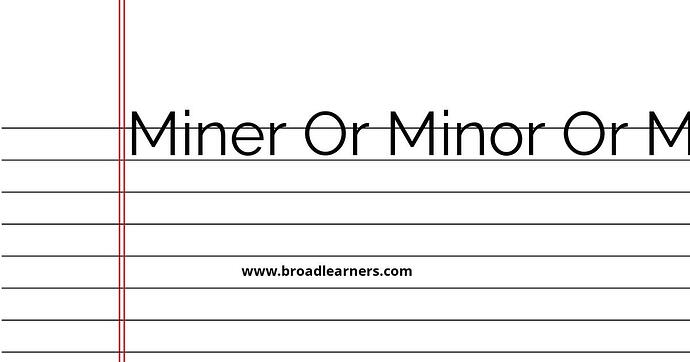'Miner', 'minor', and 'mynar' are commonly confused words in English grammar. Understanding the difference between these words is important to use them correctly in written and spoken English.
'Miner' is a noun that refers to a person who works in a mine, extracting minerals or other valuable materials from the earth.
'Minor' can be used as both a noun and an adjective. As a noun, it refers to a person who is under the legal age of adulthood. As an adjective, it means something that is lesser in importance, size, or degree.
'Mynar' is not a valid English word and is likely a misspelling or typo.
Let's take a closer look at the meanings and usage of 'miner' and 'minor'.
| 'Miner' | 'Minor' |
|---|---|
| The word 'miner' is a noun that refers to a person who works in a mine. | The word 'minor' can be used as both a noun and an adjective. |
|
|
As for 'mynar', it is not a valid English word and does not have any specific meaning or usage. It is likely a misspelling or typo.
To remember the difference between 'miner' and 'minor', it can be helpful to remember that 'miner' refers to a person who works in a mine, while 'minor' refers to a person who is under the legal age of adulthood or something of lesser importance.
Here are some examples of correct usage:
- The miner dug deep into the ground to find precious minerals.
- He is still a minor, so he cannot sign legal documents without parental consent.
- The issue of climate change is not minor; it requires urgent attention.
Remembering the correct usage of 'miner' and 'minor' will improve your grammar and communication skills.
